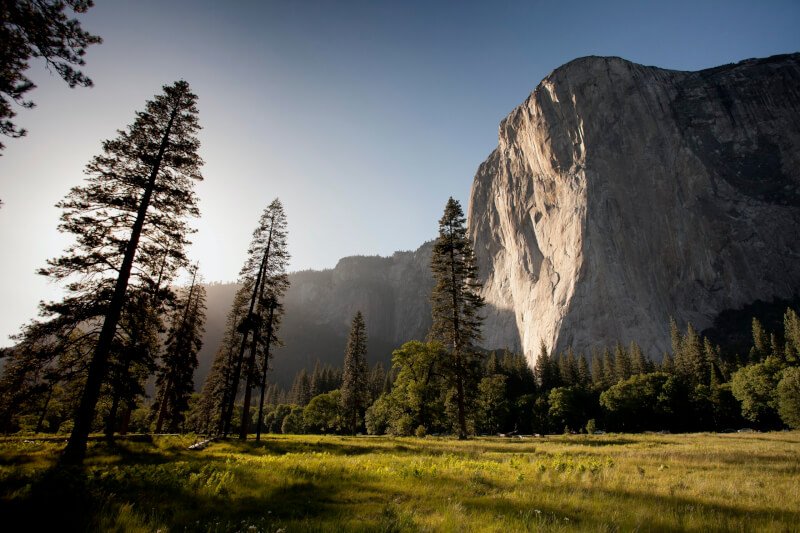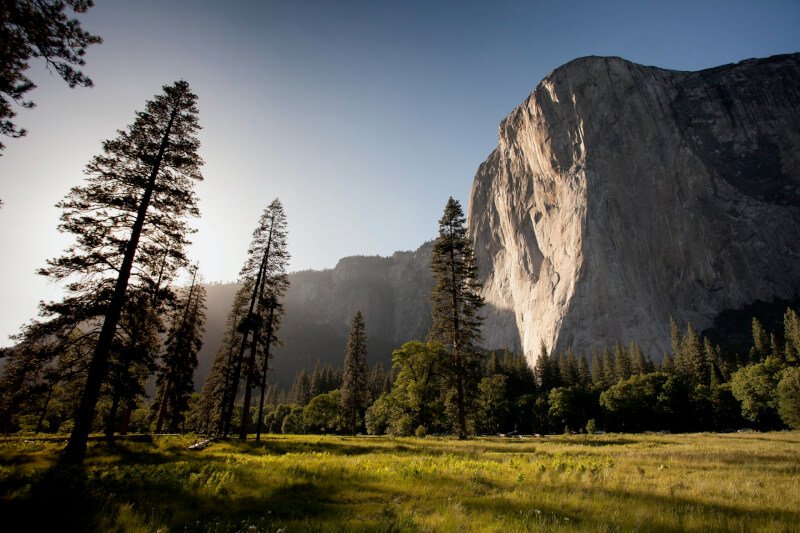Tea ceremonies hold a crucial role in specialty tea culture, embodying a deeper appreciation for tea as a form of art. These ceremonies, rooted in ancient traditions, have the power to transport participants into a calming and mindful state, fostering a connection between tea, nature, and oneself. By paying attention to every intricate detail, from the preparation to the pouring, tea ceremonies create an environment where individuals can fully immerse themselves in the flavors, aromas, and sensations of tea, cultivating a heightened sense of mindfulness and appreciation for the beauty that can be found in everyday rituals.

Introduction to Tea Ceremonies
Tea ceremonies, also known as tea rituals, are an integral part of various cultures around the world. These ceremonious events have deep historical, philosophical, and spiritual connections, and they offer a unique experience to tea enthusiasts. From the serene ambiance to the meticulous rituals, tea ceremonies provide a moment of tranquility and an opportunity to connect with oneself and others. In this article, we will delve into the definition, origin, historical significance, philosophical connections, and various other aspects of tea ceremonies.
Definition of Tea Ceremonies
Tea ceremonies can be best described as formalized events that celebrate the art of tea preparation and consumption. These ceremonies often involve a series of rituals and practices that highlight the beauty, intricacy, and elegance of tea. They create a space for individuals to gather, appreciate the tea-making process, and engage in mindful consumption. Tea ceremonies are not simply about drinking tea; they aim to enhance the sensory experience, promote mindfulness, and foster a sense of harmony and connection with oneself and the surrounding environment.
Origin of Tea Ceremonies
The practice of tea ceremonies can be traced back thousands of years, with its origins deeply rooted in ancient Chinese culture. It is believed that tea was first discovered in China around 2737 BCE by the legendary Emperor Shennong. Initially, tea was used mainly for medicinal purposes. However, over time, the Chinese began to appreciate tea not only for its health benefits but also for its flavor and the sense of tranquility it brought.
Historical Significance
Tea Ceremonies in Ancient China
In ancient China, tea ceremonies held immense cultural importance. They were not only a way to enjoy tea but also an opportunity for individuals to demonstrate their respect for the beverage and its significance in their lives. Tea was often regarded as a symbol of status, purity, and refinement. The ceremonies involved intricate rituals and practices, including the preparation of tea leaves, the use of specific utensils, and the adherence to proper etiquette. These ceremonies were influential in shaping Chinese culture and promoting a deep appreciation for tea.
Spread of Tea Ceremonies to Japan
Tea ceremonies reached new heights of significance when they were introduced to Japan during the Tang dynasty in the 9th century. The Japanese adopted the Chinese tea culture, but soon developed their unique approach, known as the “Way of Tea” or Chanoyu. The tea ceremonies in Japan expanded beyond the aristocracy and became widely practiced among the samurai and eventually the general population. The Japanese tea ceremonies focused on simplicity, humility, and the art of serving and receiving tea. These ceremonies became a reflection of Japanese aesthetic values and played a pivotal role in the development of Japanese tea culture.
Tea Ceremonies in Other Cultures
While tea ceremonies have deep roots in China and Japan, they have also found their place in other cultures worldwide. For example, in the Middle East, the tradition of preparing and serving tea, known as “chai,” holds great cultural significance. In Morocco, the art of preparing mint tea symbolizes hospitality and friendship. The British “afternoon tea” is another example of a tea ceremony, where the consumption of tea and various delicacies became a social occasion. These diverse tea ceremonies across cultures showcase the universal appeal of tea and its ability to promote community, connection, and celebration.

Philosophical and Spiritual Connections
Tea Ceremonies and Zen Buddhism
Tea ceremonies have strong connections with Zen Buddhism, particularly in Japan. Zen Buddhism emphasizes the importance of mindfulness, meditation, and tranquility, all of which are embodied in tea ceremonies. The process of preparing and serving tea becomes a form of meditation, allowing participants to engage in the present moment, cultivate inner peace, and appreciate the beauty of simplicity. Tea ceremonies provide an avenue for self-reflection and promote a sense of unity between the body, mind, and spirit.
Harmony and Tranquility
One of the underlying principles of tea ceremonies is the pursuit of harmony and tranquility. The careful selection of tea leaves, the precise brewing techniques, and the serene environment all contribute to creating an atmosphere of peace and balance. Tea ceremonies invite individuals to slow down, step away from the chaos of everyday life, and find solace in the simple act of savoring a cup of tea. The harmony and tranquility experienced in tea ceremonies extend beyond the duration of the ceremony, leaving participants with a lasting sense of serenity.
Mindfulness and Meditation
Tea ceremonies offer a unique opportunity to practice mindfulness and meditation. By focusing on each step of the tea preparation process, from measuring the tea leaves to pouring the hot water, participants are encouraged to be present in the moment and fully engaged in their actions. This heightened state of awareness cultivates a sense of mindfulness, allowing individuals to appreciate the subtleties of taste, aroma, and texture. Through the practice of tea ceremonies, mindfulness becomes an integral part of daily life, fostering a deeper connection with oneself and the surrounding environment.
Enhancing the Tea Experience
Importance of Rituals
Rituals play a crucial role in tea ceremonies, adding depth and significance to the entire experience. Each step of the tea preparation process is carefully choreographed, emphasizing the precision and attention to detail required to create the perfect cup of tea. From the cleansing of utensils to the specific sequence of pouring water, these rituals not only enhance the aesthetic appeal of tea ceremonies but also create a sense of reverence for the beverage. The act of following rituals during tea ceremonies provides a framework for participants to fully immerse themselves in the experience and appreciate the beauty of the moment.
Focus on Senses
Tea ceremonies aim to engage all the senses, creating a multi-dimensional and immersive experience. The aroma of the tea leaves, the sound of boiling water, the texture of the tea cup, and the taste of the tea itself all contribute to the sensory journey that unfolds during a tea ceremony. By intentionally focusing on each sensory perception, participants are able to develop a deeper appreciation for the tea and its nuances. The heightened sensory experience also invites participants to become more attuned to their surroundings and to fully embrace the present moment.
Creating a Sacred Space
In tea ceremonies, the physical space in which the ceremony takes place is meticulously prepared to enhance the tea experience. The design and arrangement of the tea room or tea house follow specific principles to create a tranquil and harmonious environment. From the choice of materials to the placement of utensils, every element is carefully curated to evoke a sense of sacredness and reverence. This intentional creation of a sacred space provides a sanctuary for participants to immerse themselves in the tea ceremony and to disconnect from the outside world, fostering a deeper connection with themselves and those around them.

Building Community and Connection
Tea Ceremonies as Social Gatherings
Tea ceremonies have long served as a platform for social gatherings, bringing people together to share in the joy of tea. Whether it is a formal tea ceremony or a casual tea gathering, these events provide an opportunity for individuals to connect, engage in meaningful conversations, and foster a sense of community. Tea ceremonies transcend language barriers and cultural differences, allowing people from diverse backgrounds to come together and celebrate their shared love for tea. The act of sharing tea creates a bond, fostering connections and nurturing relationships.
Bonding and Building Relationships
Tea ceremonies offer a unique setting for bonding and building relationships. The act of preparing and serving tea becomes a shared experience, allowing participants to collaborate and communicate in a meaningful way. As individuals engage in the rituals and practices of the tea ceremony, they develop a deeper understanding and appreciation for one another. Tea ceremonies create an intimate space where relationships can be nurtured, trust can be built, and connections can be strengthened.
Celebrating Life’s Milestones
Tea ceremonies are often intertwined with significant milestones and celebrations in life. From weddings and births to anniversaries and special achievements, tea ceremonies provide a means of commemorating these important events. The act of gathering together, preparing tea, and sharing in the ceremonial experience becomes a meaningful expression of joy, gratitude, and well-wishes. Tea ceremonies offer a way to honor and celebrate life’s milestones, creating lasting memories and forging deeper connections with loved ones.
Preserving Cultural Heritage
Passing Down Traditions
Tea ceremonies play a vital role in the preservation and passing down of cultural traditions from one generation to another. They serve as a conduit for cultural heritage, allowing customs, practices, and rituals to be preserved and upheld. Through the practice of tea ceremonies, younger generations can learn about their cultural roots, develop an appreciation for their ancestors’ wisdom, and carry forward the rich traditions of their heritage. By embracing tea ceremonies, communities can ensure the continuation of their cultural legacies for future generations to embrace.
Tea Ceremonies as Cultural Symbols
Tea ceremonies have become deeply ingrained as cultural symbols in many societies. They represent not only the act of enjoying tea but also encapsulate the values, beliefs, and customs of a particular culture. The rituals, symbolism, and aesthetics of tea ceremonies reflect the unique identity and traditions of a community. In this way, tea ceremonies become an embodiment of cultural pride and act as a symbol of cultural heritage for societies worldwide.
Revival and Modern Adaptations
While tea ceremonies have their roots in ancient traditions, they continue to evolve and adapt to modern times. In the face of changing lifestyles and cultural shifts, tea ceremonies have undergone revivals and reinterpretations. People have found innovative ways to integrate tea ceremonies into contemporary settings, such as tea houses, cafes, and even virtual platforms. These modern adaptations ensure that tea ceremonies remain relevant and accessible to a wider audience, allowing the essence of the ceremonies to endure while embracing the dynamics of the modern world.

Tea Ceremonies and Human Well-being
Therapeutic Benefits of Tea Ceremonies
Tea ceremonies offer numerous therapeutic benefits for individuals seeking calm and relaxation in their lives. The deliberate and slow-paced nature of tea ceremonies promotes a sense of mindfulness, grounding participants in the present moment and reducing stress and anxiety. The aroma and flavors of the tea can also provide a sensory escape, soothing the senses and inviting a state of tranquility. Additionally, the communal aspect of tea ceremonies fosters a sense of belonging and connection, which contributes to overall well-being and emotional satisfaction.
Stress Reduction and Relaxation
In today’s fast-paced and demanding world, tea ceremonies provide an oasis of calm and a chance to escape from the pressures of everyday life. Engaging in the slow and deliberate rituals of tea ceremonies allows individuals to step away from the hectic pace of their routines, inviting a sense of serenity and relaxation. The gentle and repetitive motions involved in the tea preparation process have a soothing effect on the mind and body, creating a space for introspection and helping to alleviate stress.
Promoting Mind-Body Connection
Tea ceremonies encourage individuals to reconnect with their bodies and foster a deeper mind-body connection. By practicing mindfulness and remaining fully present throughout the ceremony, participants become more attuned to their physical sensations and emotions. The art of savoring tea stimulates the senses and heightens awareness of the body’s response to the beverage. This enhanced mind-body connection promotes a sense of overall well-being, creating a harmonious relationship between the physical and the mental aspects of one’s being.
Understanding Tea Varieties and Appreciation
Recognizing Specialty Tea
Tea ceremonies provide an excellent platform for education and appreciation of specialty teas. Specialty teas are often of higher quality, sourced from select regions, and processed using meticulous methods. Through tea ceremonies, individuals can learn about the different varieties of tea, the unique characteristics of each type, and the cultural significance associated with them. Participants can explore the nuances of flavor, aroma, and appearance, heightening their understanding and appreciation of specialty teas.
Tea Ceremonies as a Platform for Education
Tea ceremonies offer an educational experience, allowing participants to learn about the history, cultivation, and preparation of tea. During a tea ceremony, knowledgeable guides or tea masters often provide insights into the tea-making process, the cultural significance of various ceremonies, and the proper techniques for brewing and enjoying tea. This information empowers participants to deepen their knowledge and develop a more refined palate, enhancing their overall tea appreciation journey.
Developing Palate and Taste
Tea ceremonies provide an opportunity for individuals to refine their palate and develop a discerning taste for tea. Through the exposure to different varieties and the guidance of tea experts, participants can explore and recognize the subtle variations in tea profiles. They can learn to discern the complexities of flavor and aroma, understanding the influence of factors such as soil, climate, and processing techniques on tea quality. The practice of tea ceremonies enables participants to develop a more refined appreciation for tea and its rich diversity.

Tea Ceremonies and Sustainability
Connectivity to Nature
Tea ceremonies highlight the deep connection between tea and nature, fostering a sense of appreciation and respect for the environment. The cultivation of tea leaves relies on the delicate balance of natural elements, including soil, sunlight, and rainfall. Through the practice of tea ceremonies, individuals are encouraged to develop a greater awareness of the origins of their tea and to consider the impact of their choices on the environment. The connectivity to nature experienced in tea ceremonies serves as a reminder of the importance of sustainable practices in tea cultivation and consumption.
Appreciation for Tea Growing and Processing
Tea ceremonies create an opportunity for participants to gain a deeper understanding of the intricate processes involved in tea growing and processing. From the cultivation and harvesting of tea leaves to the intricate steps of withering, rolling, and drying, tea ceremonies shed light on the labor-intensive journey that takes place before a cup of tea is enjoyed. This newfound appreciation for the craftsmanship and dedication of tea producers fosters a sense of respect and gratitude for the entire tea ecosystem, from the farmers to the artisans.
Respecting the Environment
Tea ceremonies promote an ethos of environmental responsibility and sustainability. Sustainable tea cultivation practices, such as organic farming methods and biodiversity conservation, are often emphasized and celebrated during tea ceremonies. Participants are encouraged to support tea producers who prioritize eco-friendly practices and embrace tea companies that prioritize fair trade and ethical sourcing. By incorporating sustainability into tea ceremonies, individuals are inspired to play an active role in preserving the natural resources that make tea production possible.
Tea Ceremonies in a Modern World
Adapting to Contemporary Lifestyles
Tea ceremonies have successfully adapted to the demands and preferences of the modern world. While traditional tea ceremonies required considerable time and attention, more accessible variations have emerged to fit the fast-paced lifestyle of today. Simplified tea ceremonies, such as “tea meditation” or “mini-ceremonies,” offer shorter, yet equally meaningful, tea experiences. Additionally, the growing popularity of tea ceremonies in tea houses and cafes has made them more accessible to a wider audience, allowing individuals to partake in the art of tea preparation and consumption in a contemporary setting.
Tea Ceremonies and Mindful Living
Tea ceremonies align with the principles of mindful living, offering a means to incorporate mindfulness into daily routines. By taking the time to fully engage in the tea preparation and consumption process, individuals can practice mindfulness and infuse their lives with intention and awareness. The rituals and practices of tea ceremonies serve as anchors for mindful living, reminding individuals to slow down, savor the present moment, and cultivate a greater sense of gratitude and well-being.
Tea Ceremonies in Tea Houses and Cafes
Tea houses and cafes have embraced the concept of tea ceremonies, providing dedicated spaces for individuals to gather and immerse themselves in the world of tea. These establishments often offer a range of tea ceremony experiences, from traditional to modern interpretations, catering to a diverse range of preferences. Tea houses and cafes strive to create an ambiance that encourages relaxation, reflection, and connection. The prevalence of tea ceremonies in these establishments has revolutionized tea consumption, making it more accessible and appealing to tea enthusiasts and those looking for a respite from their busy lives.
In conclusion, tea ceremonies hold profound significance in specialty tea culture and beyond. From their ancient roots in China to their evolution and adaptation in various cultures worldwide, tea ceremonies encapsulate the essence of tradition, community, mindfulness, and appreciation. These ceremonious events offer a moment of respite in today’s fast-paced world, fostering a deeper connection with oneself, others, and the natural world. Whether through their historical, philosophical, or therapeutic aspects, tea ceremonies continue to play a vital role in preserving cultural heritage and promoting the well-being of individuals.


